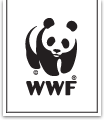 The successful candidate will have the opportunity to spend the first 3 to 4 months of their fellowship within WWF office (s) and work collaboratively with WWF staff to identify the research needs that will enhance knowledge around urban development potential to help reduce humanity’s global footprint while protecting citizen’s opportunities for development and wellbeing. The first phase of this fellowship opportunity will focus on producing a roadmap for the next development phase of the Earth Hour City Challenge, looking at challenges and trends currently faced by fast growing cities and identifying opportunities to be taken on board by the WWF platform. As a second phase, the successful candidate will identify an academic lead to develop a research project focusing on the identification/development of strategic indicators to monitor cities’ progress in their sustainability commitments and actions. For this phase, the fellow will identify an academic lead for the research project and will typically move to the academic institution where the academic leader works. They will then develop their research project working with a Collaborative Research team composed of their WWF lead, their academic lead, and key experts from inside and outside WWF.
The successful candidate will have the opportunity to spend the first 3 to 4 months of their fellowship within WWF office (s) and work collaboratively with WWF staff to identify the research needs that will enhance knowledge around urban development potential to help reduce humanity’s global footprint while protecting citizen’s opportunities for development and wellbeing. The first phase of this fellowship opportunity will focus on producing a roadmap for the next development phase of the Earth Hour City Challenge, looking at challenges and trends currently faced by fast growing cities and identifying opportunities to be taken on board by the WWF platform. As a second phase, the successful candidate will identify an academic lead to develop a research project focusing on the identification/development of strategic indicators to monitor cities’ progress in their sustainability commitments and actions. For this phase, the fellow will identify an academic lead for the research project and will typically move to the academic institution where the academic leader works. They will then develop their research project working with a Collaborative Research team composed of their WWF lead, their academic lead, and key experts from inside and outside WWF.
The Fellow will play a leading role in the project by leading research and the Collaborative Research team. The Fellow will have an important role in synthesizing findings and promoting the conservation actions desired with key decision makers. The Fellow will also participate in the Luc Hoffmann Institute Fellows Program by producing a relevant, topical Luc Hoffmann Institute Knowledge Product, engage in collaborative research activities with other fellows and Luc Hoffmann Institute staff as well participate in annual professional development training aimed at enhancing technical, leadership and communication skills.
The Fellow is expected to spend 75% of their time on project development, implementation, and dissemination at the selected host research institution(s) in close collaboration with their WWF mentor (Carina Borgström-Hansson, Footprint Expert-WWF Sweden) and the Luc Hoffmann Institute. The remaining of time will be spent participating in the Luc Hoffmann Institute Fellows Program.
Location/Contract Details:
WWF Office in Stockholm, Sweden for the first 4 months. This is a 2-2.5 year position that can begin as early as September 2014. The location for the remaining duration of the assignment is to be determined.
Main responsibilities:
- Identify key opportunities around the Earth Hour City Challenges and develop a roadmap to act on these collaboratively with the Luc Hoffmann Institute and WWF
- Develop/Identify a set of strategic indicators to monitor cities progress on sustainability commitments and actions
- Map out key academic partners and stakeholders to engage in this research
- Lead and coordinate collaborative research team activities, under the supervision of the WWF lead and the Academic Lead
- Convene the Conservation Research Team meetings;
- Prepare “Science to Action” briefs, methodology guide, conference presentations and other communications of project findings;
- Engage in the activities of Luc Hoffmann Institute Fellows Programme including trainings and contributing to our online presence.
Deadline for applications: 23rd July 2014
